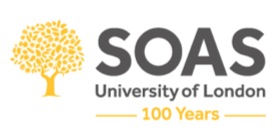Time: 13:00-15:00 (GMT), Wednesday, 3 March 2021
Presenter: Professor Léonce Ndikumana, University of Massachusetts Amherst (USA)
Chair: Professor Victor Murinde, SOAS University of London
Discussants: Ms Kampeta Pitchette Sayinzoga, CEO, Rwanda Development Bank
Ms Patricia Ojangole, CEO, Uganda Development Bank
Ms Lucy Chege, Head of Energy, Environment & ICT, Development Bank of Southern Africa
Professor Stephany Griffith-Jones, Columbia University
Online venue: Click here to join the meeting on Microsoft Teams (For any inquiry about how to join the online seminar, please contact Dr Meng Xie: xm1@soas.ac.uk)
Abstract
National development banks remain an important part of modern financial sectors in developed as well as developing countries as illustrated, among others, in the various editions of the World Bank’s Survey of National Development Banks. The attention to the role of national development banks has been reinvigorated in the aftermath of the global financial crisis and their potential role in promoting access to finance and providing counter-cyclical financing is better appreciated today than in the structural adjustment era. Time is ripe for research on this topic from both academic and policy perspectives. In this context, the objective of this study is to examine the landscape of national development banks in Africa and provide evidence on their role in complementing commercial banks to meet the financing needs of the real sector. The discussion is supported by evidence from national development banks in selected countries as well as econometric analysis based on bank data from the BankFocus database. The goal of this study is to provide empirical evidence that demonstrates the value added of national development in the development of financial systems in African countries, and to use country-level evidence to shed light on the necessary institutional and operational models that help maximize the impact of national development banks on development in African economies.
Presenter
Professor Léonce Ndikumana
Léonce Ndikumana is a Distinguished Professor of Economics and Director of the African Development Policy Program at the Political Economy Research Institute (PERI) at the University of Massachusetts Amherst, USA. He is a member of the Independent Commission for the Reform of International Corporate Taxation (ICRICT) and former member of the United Nations Committee on Development Policy. He has served as Director of Research and Director of Operational Policies at the African Development Bank, and Chief of Macroeconomic Analysis at the United Nations Economic Commission for Africa (UNECA), Léonce Ndikumana is a graduate of the University of Burundi and received his doctorate from Washington University in St. Louis, Missouri. He is an Honorary Professor of Economics at the University of Cape Town and the University of Stellenbosch in South Africa. He has contributed to various areas of research and policy analysis on African countries, including the issues of external debt and capital flight, the role of foreign aid in African development, financial markets and growth, macroeconomic policies for growth and employment, and the economics of conflict and civil wars in Africa. He is co-editor of Capital Flight from Africa: Causes, Effects and Policy Issues and co-author of Africa’s Odious Debts: How Foreign Loans and Capital Flight Bled a Continent, published also in French as La Dette Odieuse d’Afrique: Comment l’endettement et la fuite des capitaux ont saigné un continent, in addition to dozens of academic articles and book chapters on African development and Macroeconomics.
Léonce Ndikumana is passionate about capacity building in research and development policy, fulfilling his passion as a resource person and mentor for researchers in the African Economic Research Consortium network (AERC), and as a member of the Advisory Board of the Association for the Advancement of African Women Economists. He is also involved in supporting non-government organizations involved in social development and education in Burundi, notably Burundi Friends International (BFI) where he serves on the Advisory Board, Village Health Works (VHW) as a member of the Advisory Board for the Kigutu International Academy (KIA), and the Association des Anciens Elèves de l’Ecole Normale/Lycée de Rutovu (AENR/LR) as Secretary General.


